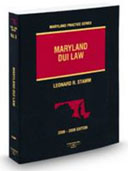Yesterday the Supreme Court announced its opinion in Williams v. Illinois. The decision was anxiously awaited by those of us who have followed the Supreme Court’s recent Confrontation Clause cases, namely Melendez-Diaz v. Massachusetts and Bullcoming v. New Mexico. Melendez-Diaz had held that the chemist in a drug case must be brought to court by the government for cross-examination, and Bullcoming held that another chemist in a lab who had nothing to do with a test cannot take the place of the actual analyst who reported a blood alcohol reading in a DUI case.
In Williams v. Illinois, Williams was convicted of rape based on a DNA match. DNA was collected from semen found during the victim’s rape exam and the profile identified at Cellmark Laboratories in Germantown, Maryland. A different lab analyzed William’s DNA and identified a genetic profile. Illinois did not call anyone from Cellmark to testify, but rather called an expert who testified that the two samples were a DNA match.
The Supreme Court decided in an unusual plurality – 4-1-4 – that the expert could give the opinion of a match, even though no one from Cellmark testified to the underlying profile that was the basis for the opinion. What is unusual about the opinions issued in the case is that the five justices who voted to affirm the Illinois Supreme Court (and the rape conviction) did not agree why and that a majority of five agreed the plurality’s reasoning was wrong.
The four justice plurality (Alito, Roberts, Kennedy, & Breyer) felt that the result from Cellmark was (1) somehow not admitted for its truth and (2) and that the primary purpose of the test was not to prosecute the defendant. However, five justices (Kagan, Scalia, Ginsburg, Sotomayor, & Thomas) – a majority – disagreed with this reasoning. The other concurring Justice (Thomas) felt that the Cellmark report was too informal to be considered “testimonial.” However, nobody agreed with him.
The dissenters (Kagan, Scalia, Ginsburg & Sotomayor) noted the votes and questioned what if any effect this case would have for future cases. Justice Kagan’s dissenting opinion states:
What comes out of four Justices’ desire to limit Melendez-Diaz and Bullcoming in whatever way possible, combined with one Justice’s one-justice view of those holdings, is–to be frank–who knows what. Those decisions apparently no longer mean all that they say. Yet no one can tell in what way or to what extent they are altered because no proposed limitation commands the support of a majority.
The better course in this case would have been simply to follow Melendez-Diaz and Bullcoming. Precedent-based decisionmaking provides guidance to lower court judges and predictability to litigating parties. Today’s plurality and concurring opinions, and the uncertainty they sow, bring into relief that judicial method’s virtues. I would decide this case consistently with, and for the reasons stated by, Melendez-Diaz and Bullcoming. And until a majority of this Court reverses or confines those decisions, I would understand them as continuing to govern, in every particular, the admission of forensic evidence.
The Supreme Court has used the “narrowest grounds” test to decide the effect of plurality decisions in its cases. In Marks v. United States, the Court said:
When a fragmented Court decides a case and no single rationale explaining the result enjoys the assent of five Justices, “the holding of the Court may be viewed as that position taken by those Members who concurred in the judgments on the narrowest grounds . . . .”
In Williams, since the vote for the reasoning used by the plurality was 4-5, there is no “narrowest ground” agreed to by a majority and the plurality opinion should have no effect in other cases.
If you are facing criminal or traffic charges in Maryland state or federal court, call Leonard R. Stamm or Johanna Leshner of Goldstein & Stamm, P.A. at 301-345-0122 for a free consultation.
Leonard R. Stamm Goldstein & Stamm, P.A.
6301 Ivy Lane, Suite 504 Greenbelt, Maryland 20770 www.lstamm.com
301-345-0122 (fax) 301-441-4652
Author: West’s Maryland DUI Law

 Maryland DUI Lawyer Blog
Maryland DUI Lawyer Blog

